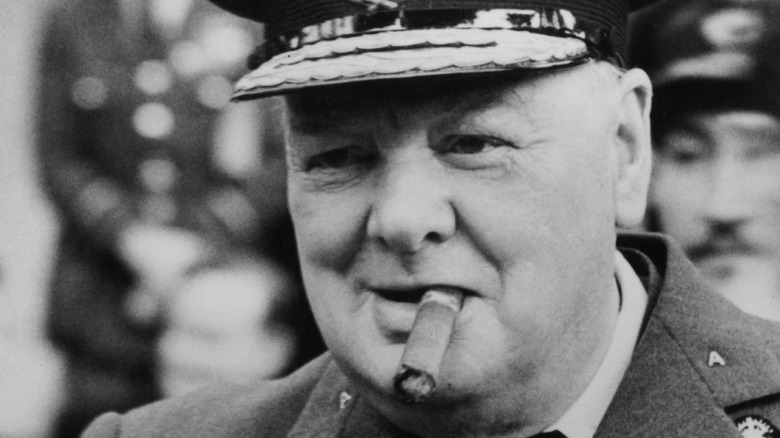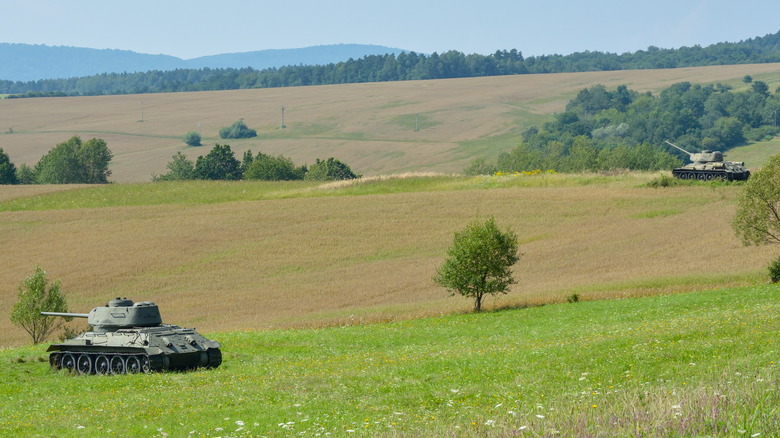Here's What Might've Happened If Operation Unthinkable Took Place
In September of 1939, Poland faced an impossible scenario; Nazi Germany had begun its invasion of the country, while the Soviet Union followed with their own two weeks later. The two massive militaries overwhelmed Poland's defenses as France, nominally obligated to intervene, only temporarily invaded German Saarland before withdrawing (via War History Online). Britain at this point did even less to aid Poland, as a consequence of Prime Minister Neville Chamberlain's desire to avoid war through appeasement.
Practical as it may have been, his inaction led to Poland surrendering the following month. In 1945, Winston Churchill (pictured above) did not wish for a repeat of 1939, with Poland and much of western Europe merely trading German domination for that of the Soviets. Instead he wished for a reignition of conflict in Europe with the ultimate aim of liberating these war-torn countries. Thus Operation Unthinkable was concocted, a planned invasion of the Soviet Union by the western Allies (via The National Interest).
The prospect of such an invasion, considered a hypothetical Third World War by many, has led to its examination in both academic settings (i.e. globalsecurity.org) and public forums like Reddit. While details of their respective scenarios vary, both communities generally agree that the operation would not have resolved much.
Operation Unthinkable would probably have been a failure
America's bombers and navy could do similar damage to the Soviets that they had so far done to the Axis, but that alone would likely not have yielded a surrender from Stalin. If executed as initially planned, Operation Unthinkable was set for July of 1945, before atomic weapons were deployed by the U.S. on Japan, and therefore the invasion would have initially been fought with conventional weaponry and troops. Yet even if atomic weapons were to be used in this scenario, their impact may not have been felt.
The atomic bombings were viewed by the Japanese as scarcely different from the conventional American firebombings, while the threat of Soviet Russia invading Japan is recognized as the primary motivation in the Japanese surrender (via Carnegie Council for Ethics in International Affairs). Given that just three years prior to Operation Unthinkable's supposed launch date the Soviets were engaged in dogged resistance against Nazi occupation across the vastness of western Russia, it is debatable how effective the handful of available atomic bombs would have been. Were the Soviets to have been as indifferent to atomic weapons as Japan, combined with Russia's winter and vast distances, then an Allied invasion might have had the same outcome as the German army's.

